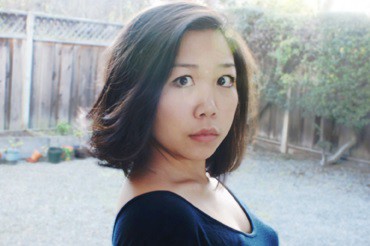Chicken & Egg Pictures has announced the newest participants of their Diversity Fellows Initiative. Now in its second year, the program supports non-fiction projects directed by women of color. The five participants, chosen from a pool of international applicants for the Accelerator Lab Open Call, are making their first or second films.
This year’s crop of films look at birthing vacations in the U.S., the fight for Indigenous rights, and how communities of color navigate the criminal justice system. The lab participants are Leslie Tai, collaborators Christina D. King and Elizabeth Castle, Ursula Liang, Carolina Corral, and Tapiwa Chipfupa.
Participants of the Diversity Fellows Initiative will receive both professional and creative support, including a $5,000 grant, mentorship, workshops, and a retreat to the DOC NYC film festival. “At DOC NYC, Diversity Fellows will be given the opportunity to pitch their project to industry decision-makers such as potential funders, producers, broadcasters, [and] supporters for their film,” a press release from Chicken & Egg details.
“The Diversity Fellows Initiative provides emerging women filmmakers of color the practical skillsets needed to navigate the highly competitive industry of nonfiction filmmaking, but it also offers the industry a chance to engage with talented new voices and diverse perspectives,” commented Lucila Moctezuma, Program Director at Chicken & Egg Pictures. She stressed, “It’s not just an opportunity for new filmmakers; it’s an opportunity for the industry as well.”
Check out more details about the participants’ projects below, courtesy of Chicken & Egg.
How to Have an American Baby
Directed by Leslie Tai (US)
“How to Have an American Baby” is a kaleidoscopic voyage that travels behind closed doors into the booming shadow economy that caters to affluent Chinese tourists who travel to the US on birthing vacations — in order to give birth and obtain US citizenship for their babies. Tracing the underground supply chain from Beijing and Shanghai to Los Angeles, the film weaves together vignettes and deeply private moments. In bedrooms, delivery rooms, and family meetings, the story of a hidden global economy emerges — depicting the fortunes and tragedies that befall the ordinary people caught in the web of its influence.
Warrior Women
Co-directed by Christina D. King & Elizabeth Castle (US)
The women of the American Indian Movement fight from a vulnerable place only matriarchs can understand — it is a battle for their children and the culture they hope to preserve for them. “Warrior Women” chronicles the struggle of Madonna Thunder Hawk and Marcy Gilbert, a Lakota mother and daughter whose fight for indigenous rights started in the 1970s and continues today at Standing Rock. Through archival footage, verité, and video art, we experience Thunder Hawk’s dedication to Red Power and come to understand that activism is necessary for the very survival and success of Native culture and values for the next generation.
Untitled Race & Criminal Justice Project
Directed by Ursula Liang (US)
A nuanced look at how two communities of color navigate an uneven criminal justice system, anchored by one polarizing New York City case.
It Rains
Directed by Carolina Corral (MEXICO)
Since Oliver was killed, he communicates with his mother María through the rain. He let her know the attorney’s office buried him, along with 117 other corpses, in a hidden mass grave. This sparks a new life mission for María: to hold the government accountable for exhuming them all and returning the bodies back to the families who have been looking for them for years.
The Other Half of the African Sky
Directed by Tapiwa Chipfupa (ZIMBABWE)
“The Other Half Of The African Sky” follows filmmaker Tapiwa Chipfupa’s attempts to reconcile her estrangement from her family, triggered by a disagreement over her marriage. Through encounters with other women from all walks of life facing their own predicaments, Tapiwa explores how women hold up their half of the sky under a very constrictive and constantly contradictory environment in this very personal, brutally honest, and intriguing document of the disparities and the vast contradictions that women face in contemporary Zimbabwe. The film gives voice to the hopes, fears, and dreams of Zimbabwe’s women while simultaneously revealing a country in flux.







